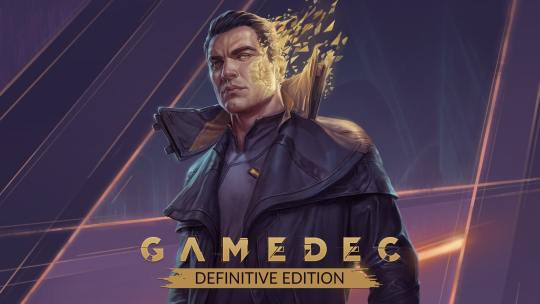#tmc_roleplaying
Explore tagged Tumblr posts
Text
Play #10: The Irreconciliation between Player and Avatar in CRPGs
While most CRPGs often feature undefined protagonist as a vessel for players to inject themselves into, the reality is that there is an impossible irreconciliation between the player’s immersion and the character’s live-in state. It is an obvious statement, yeah, but I have never thought deeply about its strange relation in narrative-driven games until now.
To begin with, for a player to enter the magic circle of CRPG, there is an implicit agreement that they have to suspend their disbelief by believing that such a virtual avatar can be a representation of them. On a basic level, the suspension of disbelief is needed for the narrative to work. After all, if the player is constantly aware that they are playing a game, they would also realize the truth that they have no real personal stake with the world itself. Whether or not the game world is destroyed, it does not directly impact their real life, or at least, not on the same level as with predefined protagonists. The player is inherently separated from the game world no matter how much they are invested in it: they have no background tie to the game world, and their vessel is often a character who only pops into existence the moment the game begins. As such, the suspension of disbelief is necessary for the enjoyment of a fictional narrative whose leading character is an empty vessel. Otherwise, how can the player have a meaningful narrative moment in the story if they are constantly aware that everything is fictional?

One of the strategies a player can employ in order to get past that irreconciliation is to go along with the genre’s definition: roleplaying. Through roleplaying, the player can disregard their real world’s self to take on an alternate persona who is supposed to live in the game’s setting. In short, they can treat the undefined protagonist as a semidefined protagonist and control them based on their ideas of an alternate self. The player here enters a limbo state between fiction and reality: they are still aware that the game is simply a fictional space, but their character will perceive the game’s world as an actual living world. In a way, through roleplaying, the player can get rid of the constant nagging of the video game’s limitation, and instead, they can treat the game’s narrative as one that closely resembles the linear narrative found in popular mediums such as books or films. Hence, it’s why roleplaying is often seen as an opposite of minmaxing, which draws more attention to the game system.
Story-driven CRPGs that invite the player’s real-world persona are fairly rare. While many games may seem to use the word “You” to refer to the player’s actual self, more often than not the word refers to the avatar vessel, who may not need to be the player themselves. I haven’t encountered a CRPG that directly refers to the player’s actual persona in a way that the player can’t delegate that reference to their alternate self. On the other hand, such technique has been done in other game genres. Like other mediums, there are plenty of metaphysical narratives in video games that use such direct connection for effective narrative moments such as in Doki Doki Literature Club, Undertale, or Paper, Please.

Why then is the CRPG genre reluctant to refer to the player directly even though it is a genre whose biggest appeal is that the player's decisions can shape the story? Is it because CRPGs are often so adherent to the classic epic adventure’s narrative structure that they can’t take into account the player, who is an anti-fictional being? After all, can a fantasy adventure still be suspenseful if the player lacks a suspension of disbelief? How can a fictional character’s yearning for their life matter when the player is always conscious that these characters are just codes written to deliver a story?
Perhaps the more interesting question here is, what sort of interesting narratives can such hypothetical CRPGs deliver if handled well? Much as I want to end this post with a hypothetical model of said concept, I unfortunately lack the imagination right now to come up with one. Maybe such a CRPG has already existed, but I haven’t found it yet in the sea of games.
0 notes
Text
Essay #8: CRPGs and the Self: An Introduction to Introspective Roleplaying
Usually, I avoid writing long essay back to back in order to give myself sometimes to think, but finishing Dragon Age: Inquisition last weekend motivated me to work on this essay, which deals with the idea of using solo roleplaying to do introspection. It is built upon the concept of playing for one's own sake that I discussed in Essay #7 as well as my own experience with roleplaying in CRPGs. In a way, this essay also serves as an comprehensive piece about my current understanding of roleplaying's values, or more specifically solo roleplaying's.
Since I'm planning to write more about introspective roleplaying, new to this blog is the tag #tmc_roleplaying. I look forward to turning CRPG genre into something special for myself!
<Link to Essay #8>
0 notes